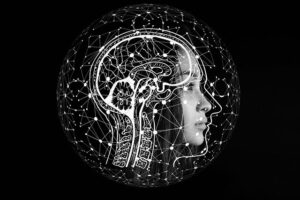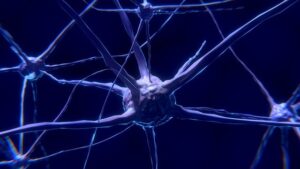
Neuroscientists from Israel were able to perform a study in which a solution for inflammation can be provided by means of the brain’s neurons.
The researchers were able to look at how the brain naturally influences the body’s overall health into acquiring sickness.
Among the most remarkable discoveries from neurological research is that gray matter and its activities may act as a brain-body interface.
To this end, there are various interfaces within the body that can be influenced by active parts of the mind.
Furthermore, it has been noted that chronic stress affects the locus coeruleus (LC), which is responsible for regulating feelings of fear and general physical wellbeing in each individual.
The LC also controls noradrenergic norepinephrine (NE) neurotransmitters which can directly or indirectly influence autoimmunity. This is the form of stress that promotes sickness within the body.
How Stress Plays a Role in Autoimmune Disease
Stress affects an individual’s immune system by changing how it functions through the release of hormones like cortisol and adrenaline, which are referred to as stress hormones.
The immune system itself has various components that can become hyperactive when an individual is under chronic stress in order to protect his or her body against foreign invaders.
This also means that the immune system may end up attacking its host’s own cells, which in turn affects both tissue and cell growth within the brain.
A study conducted by the Drexel University and published in the Journal of Neuroscience found that stress increases an individual’s susceptibility to sickness.
According to researchers, chronic stress ignites a biological firestorm because it can cause inflammation as well as other factors harmful for human health.
The research team applied high-powered microscopes to look at zebrafish that they exposed to chronic stress.
The fish’s brains were then studied to see how they were affected by exposure to cortisol, a stress hormone released from the adrenal gland when an individual is under intense pressure.
The researchers found that exposure to cortisol causes blood vessels in the brain stem region called the hindbrain increased inflammation and can also cause the hindbrain to atrophy.
The hindbrain is responsible for regulating an individual’s physical state and has a direct link with the hypothalamus which controls how a person feels physically as well as emotionally.
In many cases, an inflamed brain can cause sickness that impacts a person’s entire body, including the mind or mental health.
Brain-Based Activation and Inflammation Solution

From the Technion-Israel Institute of Technology, the study’s brain-based anti-inflammatory cure was led by experts. The research was made possible through the assistance of healthy mice that did not have any neurological impairments.
When neurons were reassembled on certain patterns, the test subjects were observed to develop inflammation in their body without apparent causes.
According to the study’s authors, the comparison between neurons and local circumstances reveals important information about how the brain influences physical diseases such as inflammation by generating triggers.
The study on mice shows that the brain can substitute a person’s body with psychosomatic problems “replaying” any previous physical ailments that had appeared on his or her body.
The study’s authors, including the Technion-Israel Institute of Technology researchers, reached preliminary conclusions based on the collaborative efforts of important institutes, such as Nazareth’s Edinburgh Medical Missionary Society EMMS Hospital and the University of Haifa.
The series of tests on the patients included activating inflammation in specific locations in their system, such as the abdomen or legs.
The benefit of this research is in the discovery that the hypothalamus, which controls a person’s physical and emotional states, can be linked to inflammation-generating mechanisms within an individual’s body.
This leads experts to believe that psychosomatic issues may precipitate such causes as mental retardation or autism in children who were born healthy.
The findings were presented at the Fifth International Congress for Neuropsychopharmacology in Japan.
The presentation also included analyses made on mice with inflamed brain tissues, which showed that activation can cause inflammation to worsen.
This research is considered groundbreaking because it could eventually lead to the generation of drugs that are capable of treating people without generating harmful side effects.
Then, after the inflammation had subsided, the researchers evaluated the healing phase of each subject.
The same neurons that were activated by the experts in response to the inflammation now react to it once again, resulting in the recurrence of similar localized difficulties in the same parts of the subjects’ bodies.
- See also: brain implant allows a man with paralysis to turn his thoughts into words
- See also: there is a significant difference human brains and those of other species
Neurons and the Mind: New Insights into Psychosomatic Illness

According to the journal Neuropsychopharmacology, research from Tel Aviv University’s Technion-Israel Institute of Technology showed that inflammation in the brain is linked to anti-inflammatory cytokines.
The findings indicate that the brain is made up of elements that can directly represent patients’ inflammatory problems, according to Asya Rolls, a neuroscientist and brain researcher from the University of Haifa.
Scientists believe that this knowledge could be used to assess a patient’s health before any physical symptoms appear.
In addition, researchers also said that there is a possibility that psychosomatic disease can be healed through treatments that target the brain exclusively.
The anti-inflammatory effects will produce a cure for a specific patient, regardless of the patient’s age or any other physical conditions.
The researchers have also shown that the brain can generate inflammation in different parts of a person’s body. According to Vadim Ananyev, lead author of the study, this kind of discovery has not been seen before in any part of the human body.
According to Dr. Rolls, despite the significant gap between human and mouse subjects in the study, the discoveries might lead to new insights into the relationship between the brain and psychosomatic diseases, as well as offer new possibilities for brain-based treatments against inflammation.
The Cell article titled “Insular cortex neurons encode and retrieve specific immune responses” was published in the journal Cell on July 29, 2015.
According to scientific studies, about one in five people have suffered from a psychosomatic disorder during their lifetime.
In addition, inflammation can lead to anxiety disorders and major depression among patients who have high levels of this condition in their bodies, Vadim Ananyev claims. This is due to the fact that inflammation can damage neurons in the brain.



